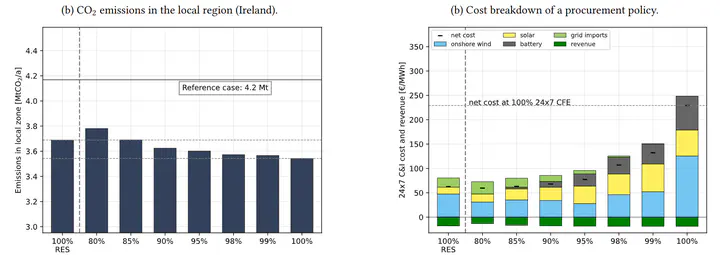On the means, costs, and system-level impacts of 24/7 carbon-free energy procurement

Abstract
A growing number of public and private energy buyers are interested in 24/7 carbon-free energy (CFE) procurement, which means that every kilowatt-hour of electricity consumption is met by carbon-free sources at all times. It has the potential to overcome the limitations of established procurement schemes, such as the temporal mismatch between clean electricity supply and buyers’ demand that is inherent to “volumetric” matching. Yet it is unclear how 24/7 CFE procurement affects the rest of the power system, and whether this effect is consistent across regional contexts and different levels of system cleanness. We use a mathematical model to systematically examine different designs, optimal procurement strategies, costs, and impacts of the 24/7 CFE matching, both for participating buyers and for regions where voluntary procurement occurs. We examine mechanisms driving system-level emissions reduction and how they vary across regions and over time. Our results indicate that clean energy procurement commitments have consistent beneficial effects on participants and the electricity system. Even as grids become cleaner over time, the hourly matching strategy contributes significantly to system-level emissions reduction. In addition, voluntary commitments to 24/7 CFE have a further transformative effect on electricity systems through accelerated innovation and early deployment of advanced energy technologies.